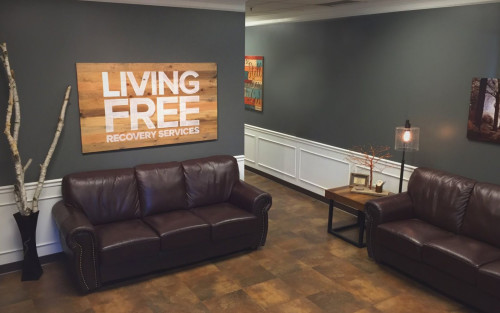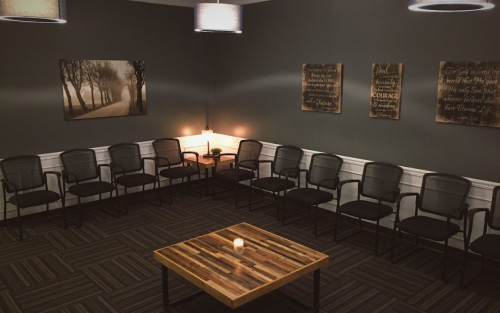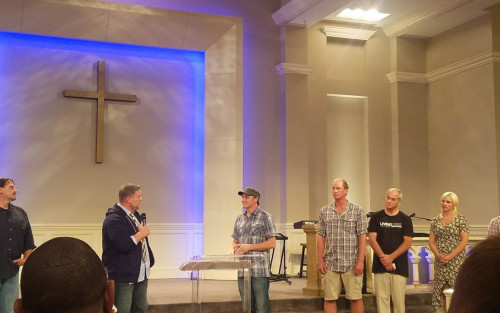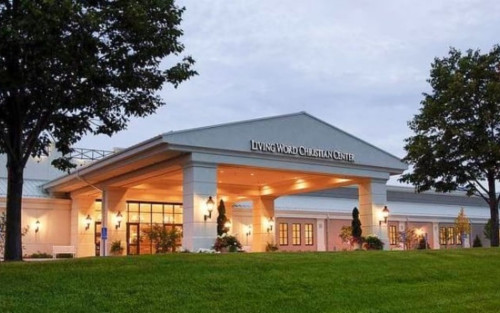






Living Free Recovery Services
Treatment Focus
This center primarily treats substance use disorders, helping you stabilize, create relapse-prevention plans, and connect to compassionate support.
Primary Level of Care
Outpatient treatment offers flexible therapeutic and medical care without the need to stay overnight in a hospital or inpatient facility. Some centers off intensive outpatient program (IOP), which falls between inpatient care and traditional outpatient service.
This provider hasn't verified their profile's information. Are you the owner of this center? Claim your listing to better manage your presence on Recovery.com.
Treatment Focus
This center primarily treats substance use disorders, helping you stabilize, create relapse-prevention plans, and connect to compassionate support.
Primary Level of Care
Outpatient treatment offers flexible therapeutic and medical care without the need to stay overnight in a hospital or inpatient facility. Some centers off intensive outpatient program (IOP), which falls between inpatient care and traditional outpatient service.
Provider's Policy
We are providers for HealthPartners, Medica, MHP, UCare, PreferredOne and Blue Cross Blue Shield. Call the customer service or member services phone number listed on your insurance card to verify your benefits.
Living Free Recovery Services
Living Free Recovery Services
About Living Free Recovery Services
Living Free Recovery Services, located in Brooklyn Park, Minnesota, is the state's longest-operating faith-based, licensed treatment program for substance use disorders. Their mission is to offer hope and unconditional love to individuals and families affected by substance use, utilizing a holistic Christian-centered approach that addresses the spirit, soul, and body. By integrating biblical principles with evidence-based practices, they aim to rebuild lives, recover faith, and renew dreams.
Find Healing in Supportive Community Groups
The organization provides a range of services, including comprehensive assessments to determine the presence and extent of substance use disorders, primary outpatient treatment programs for adults 18 and older, and various support groups. Their outpatient services encompass group and individual therapy, educational programming, and transitional services, all tailored to meet each individual's unique needs. Support groups such as Men's Fraternity, Women of Worth, The Way, and Real Life Recovery are peer-led and designed to foster healing and long-term recovery through shared experiences and mutual support.
Heal in a Comfortable and Peaceful Setting
Living Free Recovery Services is committed to inclusivity, welcoming individuals from all backgrounds. They emphasize the importance of family involvement through integrated family services and weekly educational programs. The facility occupies approximately 5,000 square feet within a peaceful office building near the west end of Living Word Christian Center, providing a comfortable environment for both staff and clients. Additionally, they serve as a Naloxone Access Point in collaboration with the Steve Rummler Hope Network, further demonstrating their dedication to community health and safety.
Center Overview
Treatment Focus
This center primarily treats substance use disorders, helping you stabilize, create relapse-prevention plans, and connect to compassionate support.

Insurance Accepted
Cash Pay Rates
Estimated Cash Pay Rate
Center pricing can vary based on program and length of stay. Contact the center for more information. Recovery.com strives for price transparency so you can make an informed decision.
Levels of Care





Your Care Options
Specializations
Drug Addiction
Drug addiction is the excessive and repetitive use of substances, despite harmful consequences to a person's life, health, and relationships.
Christian
Through surrender and commitment to Christ, patients refocus the efforts and source of their recovery with clinical and spiritual care.
Alcohol
Using alcohol as a coping mechanism, or drinking excessively throughout the week, signals an alcohol use disorder.
Who We Treat
Men and Women
Men and women attend treatment for addiction in a co-ed setting, going to therapy groups together to share experiences, struggles, and successes.
Approaches
Personalized Treatment
The specific needs, histories, and conditions of individual patients receive personalized, highly relevant care throughout their recovery journey.
Christian
Through surrender and commitment to Christ, patients refocus the efforts and source of their recovery with clinical and spiritual care.
Evidence-Based
A combination of scientifically rooted therapies and treatments make up evidence-based care, defined by their measured and proven results.
Therapies
Spiritual Care
Tending to spiritual health helps treatment become more effective, allowing patients to better cope with their emotions and rebuild their spiritual wellbeing.
1-on-1 Counseling
Patient and therapist meet 1-on-1 to work through difficult emotions and behavioral challenges in a personal, private setting.
Family Therapy
Family therapy addresses group dynamics within a family system, with a focus on improving communication and interrupting unhealthy relationship patterns.
Psychoeducation
This method combines treatment with education, teaching patients about different paths toward recovery. This empowers them to make more effective decisions.
Online Therapy
Patients can connect with a therapist via videochat, messaging, email, or phone. Remote therapy makes treatment more accessible.
Relapse Prevention Counseling
Relapse prevention counselors teach patients to recognize the signs of relapse and reduce their risk.
Recreation Therapy
In recreation therapy, recovery can be joyful. Patients practice social skills and work through emotional triggers by engaging in fun activities.
Substances We Treat
Drug Addiction
Drug addiction is the excessive and repetitive use of substances, despite harmful consequences to a person's life, health, and relationships.
Alcohol
Using alcohol as a coping mechanism, or drinking excessively throughout the week, signals an alcohol use disorder.
Languages
Aftercare
Intensive Outpatient Program
In an IOP, patients live at home or a sober living, but attend treatment typically 9-15 hours a week. Most programs include talk therapy, support groups, and other methods.
Care Designed for Your Needs
Personal Amenities
Special Considerations
Religion-Based Track
Patients can join faith-based recovery tracks to approach recovery with others in their faith, healing in a like-minded group with similar goals.
Smoking and Vaping Policy






